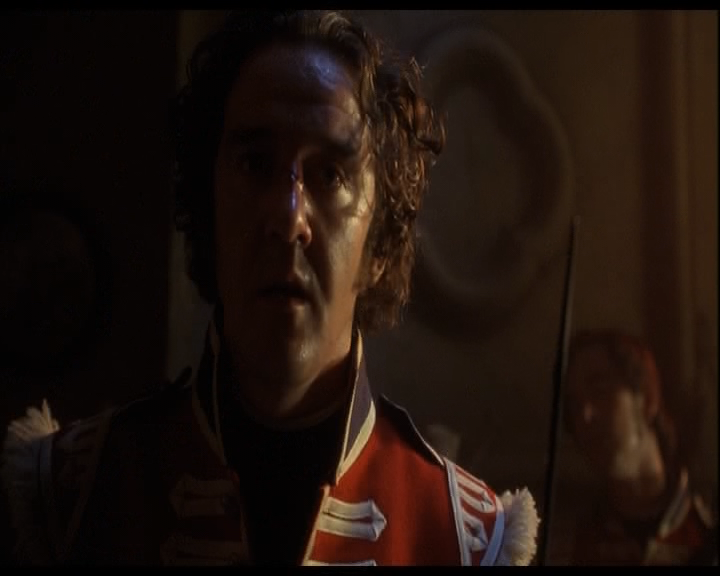Is The Count Of Monte Cristo Still Relevant? A Critical Review

Table of Contents
Dumas's sweeping tale of betrayal, imprisonment, and meticulously planned revenge continues to captivate audiences worldwide. Its enduring appeal lies not just in its thrilling plot but also in its exploration of timeless themes that resonate even today. This review argues that The Count of Monte Cristo remains strikingly relevant, offering valuable insights into human nature and the complexities of justice, revenge, and societal power dynamics.
Themes of Revenge and Justice in a Modern Context
The Enduring Allure of Revenge
The revenge narrative has captivated audiences for centuries, and The Count of Monte Cristo is a prime example of its enduring power. Edmond Dantès's quest for retribution speaks to a primal human desire for justice when the established systems fail. This theme resonates deeply with modern audiences, as evidenced by the countless films, television shows, and books that continue to explore similar narratives.
- Examples in Modern Media: The popularity of shows like Peaky Blinders, films like John Wick, and even video games like Red Dead Redemption 2 demonstrate the ongoing fascination with revenge stories.
- Psychological Aspects: The novel delves into the psychological toll of revenge, showcasing both the exhilarating rush of power and the eventual emptiness that often follows. Dantès's meticulous planning and calculated actions highlight the corrosive nature of obsession.
Justice and its Perversions
The Count of Monte Cristo serves as a powerful critique of the justice system, exposing its vulnerabilities to corruption and bias. The wrongful imprisonment of Edmond Dantès highlights the devastating consequences of injustice and the ease with which innocent individuals can be victimized by powerful forces.
- Examples of Injustice: The false accusations against Edmond, the manipulation by Fernand Mondego and Danglars, and the complicity of the judicial system itself all illustrate the novel's condemnation of flawed justice.
- Modern Parallels: The novel's critique resonates with contemporary concerns about wrongful convictions, systemic racism within the judicial system, and the abuse of power by those in authority. The fight for justice, both within the novel and in the real world, often requires individuals to overcome immense obstacles.
Exploring the Count's Character: A Complex Anti-Hero
The Morality of Revenge
Is Edmond Dantès a hero or a villain? The novel presents a complex character whose actions are both understandable and morally ambiguous. His quest for revenge is fueled by profound injustice, yet his methods often involve manipulation, deceit, and even cruelty.
- Arguments for Heroism: He seeks justice for a terrible wrong, exposes corruption, and ultimately restores balance to the lives of those he cares about.
- Arguments for Villainy: His actions are often ruthless and cause significant suffering to innocent individuals caught in his web of revenge. The lines between justice and vengeance become increasingly blurred.
The Count's Transformation
Edmond Dantès's journey from a naive and optimistic young man to a cunning and calculating avenger is one of the most compelling aspects of the novel. His imprisonment on the island of Monte Cristo is not simply a physical confinement but a crucible that forges his transformation.
- Key Moments of Transformation: His education by Abbé Faria, his acquisition of knowledge and wealth, and his meticulous planning of his revenge all mark significant stages in his transformation.
- Psychological Impact of Imprisonment: The psychological trauma of wrongful imprisonment, the deprivation of freedom and the loss of loved ones, fundamentally alter his personality, leading to his vengeful actions.
The Count of Monte Cristo's Societal Commentary
Social Class and Inequality
Dumas masterfully portrays the stark realities of social class and inequality in 19th-century France. The Count of Monte Cristo exposes the corruption and hypocrisy of the elite, highlighting the vast disparities between the wealthy and the impoverished.
- Examples of Class Conflict: The different social circles represented in the novel, the interactions between the aristocracy and the lower classes, and the struggles faced by those from lower social standings all highlight the issues of social stratification.
- Relevance to Contemporary Issues: These themes remain highly relevant today, mirroring persistent inequalities in wealth distribution, access to opportunities, and social mobility across the globe.
Political Intrigue and Corruption
The novel is filled with political intrigue, betrayal, and corruption, reflecting the realities of power dynamics in both historical and contemporary contexts. The machinations of Fernand Mondego and Danglars showcase how ambition, greed, and ruthlessness can manipulate systems of power for personal gain.
- Examples of Political Machinations: The political maneuvering of Fernand and Danglars, the corruption within the judicial system, and the manipulation of public opinion are all key elements within the plot.
- Resonance with Modern Politics: The themes of political maneuvering, corruption, and the abuse of power continue to resonate in modern political landscapes, showing the enduring relevance of Dumas's social commentary.
Conclusion
In conclusion, The Count of Monte Cristo's relevance extends far beyond its historical setting. The novel's exploration of revenge, justice, character development, and societal commentary remains strikingly relevant in the 21st century. Its enduring appeal lies in its ability to explore timeless themes that continue to resonate with modern readers, making it a compelling and insightful work of literature. Rediscover the relevance of The Count of Monte Cristo by exploring its timeless themes and revisiting its enduring power. Leave a comment below and share your thoughts on the Count of Monte Cristo's relevance to contemporary society!

Featured Posts
-
 Lower Us Ratings For Stanley Cup Playoffs Impact Of International Competition
May 04, 2025
Lower Us Ratings For Stanley Cup Playoffs Impact Of International Competition
May 04, 2025 -
 Belgian Merchant Market Financing Options For A 270 M Wh Bess
May 04, 2025
Belgian Merchant Market Financing Options For A 270 M Wh Bess
May 04, 2025 -
 Final Destination Bloodline Trailer And Franchise Box Office Performance Review
May 04, 2025
Final Destination Bloodline Trailer And Franchise Box Office Performance Review
May 04, 2025 -
 Conservative Party Slams Nigel Farages Reform Party Defection Announcement As A Sham
May 04, 2025
Conservative Party Slams Nigel Farages Reform Party Defection Announcement As A Sham
May 04, 2025 -
 Dr Ethan Choi Returns In Chicago Med Season 10 Episode 14
May 04, 2025
Dr Ethan Choi Returns In Chicago Med Season 10 Episode 14
May 04, 2025
